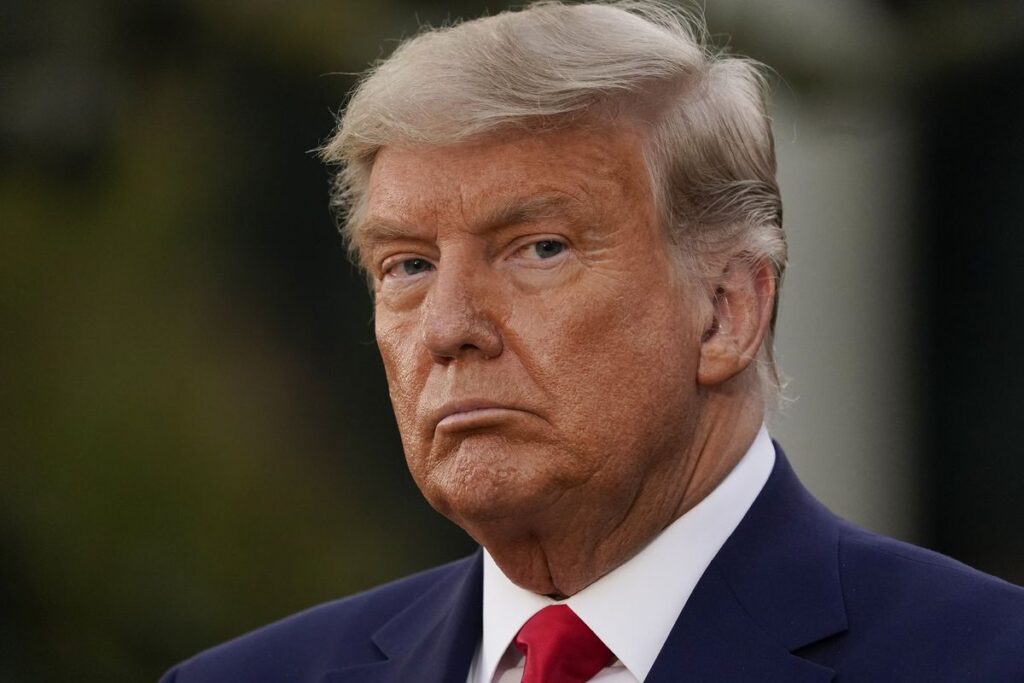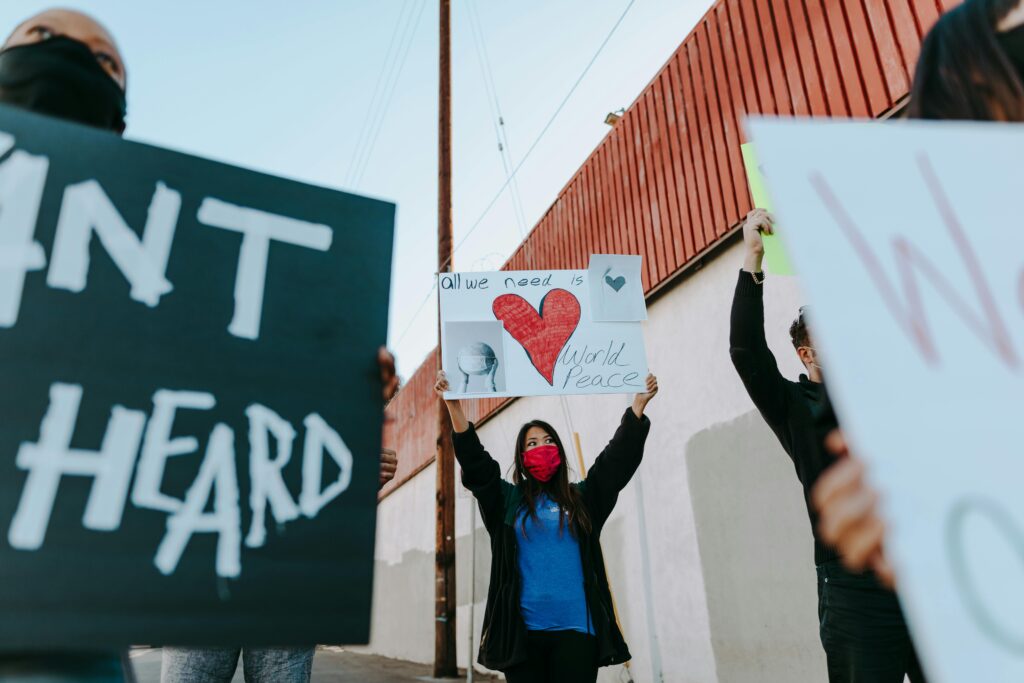"Just days into his second term, President Donald Trump made waves by signing 35 executive orders, sparking both support and controversy."

On Monday, January 20, 2025, Donald Trump was sworn in for a second term as the 47th president of the United States. Just days into his presidency, Trump wasted no time making headlines by signing 35 executive orders in his first week. As expected, many of these orders have sparked controversy, drawing both support and criticism from different sides.
1. Immigration Policies

Immigration has been one of Donald Trump’s main priorities, and his latest executive orders show that. These new rules focus on border security, deportations, and immigration enforcement as part of his efforts to keep his campaign promises.
One of the most debated decisions allows U.S. military members to help with immigration enforcement. This could make Trump’s mass deportation plan much bigger by sending more officers to remove undocumented immigrants. Some people worry this mixes the roles of the military and regular law enforcement, while others believe it will help keep the country safer.
Trump is also pushing forward with his well-known promise to build a wall along the U.S.-Mexico border. His orders focus on continuing the construction of the wall and adding other barriers. He believes stricter border security is key to stopping illegal immigration. Even though funding and planning remain difficult, his administration is moving forward with these efforts.
Another big change is the creation of Homeland Security Task Forces in every U.S. state. These teams, made up of local and state law enforcement, will work under the attorney general and Homeland Security secretary to fight criminal cartels, foreign gangs, and organised crime. The goal is to stop these groups from growing in the U.S., but some worry about how much power these new teams will have.
Trump’s orders also require more data collection on immigration detainees. Under a 2005 law, authorities must now collect DNA samples and fingerprints from detainees, making the immigration process more closely monitored. Supporters say this will help track criminal activity, while critics argue it could invade privacy and unfairly target immigrants.
Additionally, Trump is ending certain parole programs that allow family members of immigrants from Cuba, Haiti, Nicaragua, and Venezuela to come to the U.S. while waiting for their visa applications. Now, they will have to stay in their home countries until their applications are approved.
Overall, these executive orders make immigration policies stricter, showing Trump’s commitment to tightening border security and reducing illegal immigration. While many of his supporters agree with these changes, others worry about how they will affect families, communities, and law enforcement.
2. LGBTQ Policies

Trump’s new executive orders reverse many policies from Biden’s presidency that supported racial equity and LGBTQ rights. These changes affect areas like federal funding, education, and military service. For example, Trump has cancelled rules that ensured federal money was fairly shared based on the 2020 census and protected people from discrimination because of their gender identity or sexual orientation. He also ended programs that supported Native American, Hispanic, and Black students, and transgender individuals may no longer be allowed to serve in the military.
One major change is how the government defines gender. Trump’s new rules say that only males and females will be recognised on passports, visas, and other official documents. This means nonbinary and gender-diverse identities will no longer be acknowledged by the government.
Trump’s orders also change how civil rights and workplace rules are applied. They now state that “sex” only means biological gender and not gender identity. This could reduce protections for transgender people in workplaces and other areas.
Another big change is the end of the White House Gender Policy Council and the removal of Title IX guidelines that helped protect transgender students in schools. Without these rules, schools may no longer have clear guidance on how to support LGBTQ students, leaving these decisions up to individual states.
Trump has also stopped federal money from being used to “promote gender ideology.” He instructed agencies to make sure males are not placed in women’s prisons or detention centres. Supporters of these policies say they restore traditional definitions of gender and limit what they view as government overreach. However, critics argue that these changes take away important protections for transgender and nonbinary individuals, making it harder for them to access their rights and feel safe.
3. International Trade, Business, and the Economy Policies

Trump has told government agencies to adjust their policies to help reduce costs for Americans, and a top White House economic adviser must report on progress every 30 days.
One of his major plans is to create an “External Revenue Service,” a new agency that would collect money from tariffs, duties, and other trade-related fees. At the same time, he is reviewing trade with China and considering new or higher tariffs—possibly up to 60%. This could lead to conflicts with China and affect global markets.
Trump is also looking at ways to stop the flow of fentanyl into the U.S., especially from Canada, Mexico, and China. He has ordered a review of how the drug is entering the country and whether tariffs or penalties could help reduce its supply. This is part of his broader effort to tighten border security and enforce stricter punishments for drug-related crimes.
In a big shift from past policies, Trump is pulling the U.S. out of the Global Tax Deal. This deal was meant to create a minimum tax for big companies worldwide, making sure they don’t avoid paying taxes. Some worry that leaving the deal could hurt relationships with other countries, but Trump’s supporters believe it will benefit American businesses.
On the technology side, Trump is delaying the U.S. ban on TikTok for 75 days, stopping the attorney general from enforcing a law Congress passed in 2024. This delay allows his team to assess security concerns and consider the possibility of selling TikTok’s U.S. operations to an American company. Though he once backed a ban, Trump now appears to be taking a different approach, noting the vast reach of his campaign videos. Check out: Should TikTok Be Banned?
Lastly, Trump has ordered that government officials cannot pressure social media companies to fight misinformation. His order argues that past efforts to control false information limited free speech and allowed the government to promote its own views. However, some fear that this could make it harder to stop false and harmful content from spreading online.
4. Science and Technology Policies

Trump signed a plan called Removing Barriers to American Leadership in Artificial Intelligence, with the goal of making the U.S. the global leader in artificial intelligence (AI). This plan focuses on helping the government support AI research and development, ensuring America stays ahead of other countries as AI technology continues to grow.
To make this happen, Trump gathered a team of 24 advisors focused on science and technology. Some key members of this group include the assistant to the president for science and technology, as well as a special advisor for AI and cryptocurrency. This team helps the president understand and plan for new technologies that could shape the future.
Trump also signed an executive order to support the growing world of cryptocurrency, such as Bitcoin. This order aims to establish rules to keep cryptocurrency safe, while also encouraging its growth in the U.S. One part of the plan includes exploring the creation of digital assets.
5. Death Penalty and Crime Policies

Trump’s new executive orders take a strict approach to crime, especially the death penalty. One of his most debated actions asks the attorney general to find out if 37 federal prisoners—who had their death sentences changed to life in prison by Biden—can be put on trial again for capital crimes at the state level. This raises legal and moral concerns because it challenges Biden’s decision to spare them from execution.
Trump is also working to make it easier for states to carry out executions. His orders tell the attorney general to make sure states have enough lethal injection drugs since shortages have delayed executions. However, some worry this could lead to problems, as some states have had issues with failed executions and concerns about the drugs’ reliability.
In another major move, Trump wants to reverse Supreme Court rulings that have limited the use of the death penalty. His administration will now try to change these legal decisions so that the death penalty can be used more often in both state and federal cases.
Lastly, Trump is encouraging state attorneys general and prosecutors to seek the death penalty as much as possible. While this doesn’t change the law, it sends a strong message that his administration supports harsher punishments for serious crimes.
These executive orders show that Trump is taking a tough stance on crime and capital punishment, likely leading to legal challenges and renewed debates about the fairness and effectiveness of the death penalty.
Check out for more about politics: Kamala Harris is ‘Brat’ — What Does That Mean?










